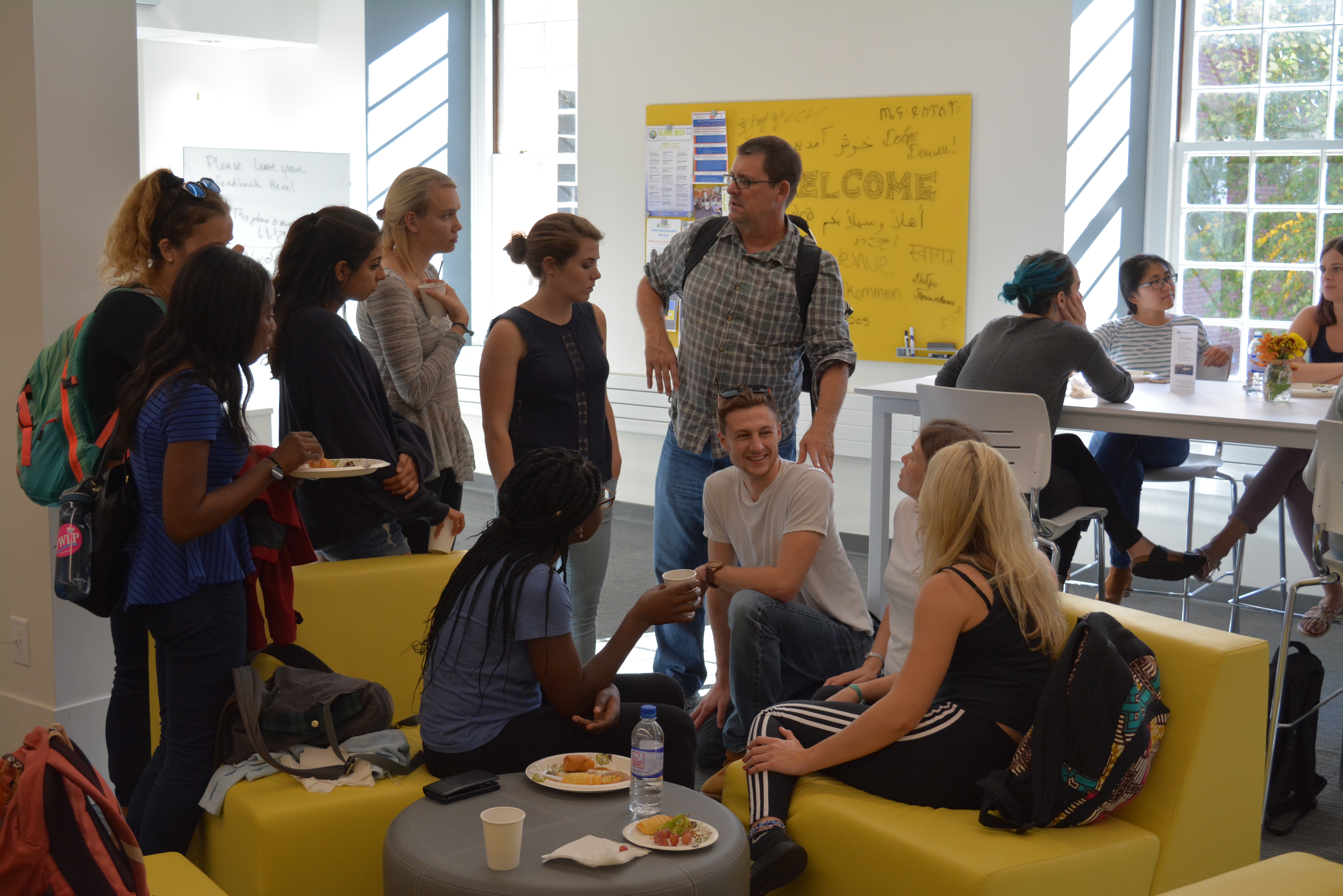Language educators in US institutions of higher education have long felt the pressure to prove the value of our work to Academe, to our learners, and to the wider public. The need to justify our existence is only heightened of late, with shrinking enrollments, dwindling budgets, and disappearing tenure lines in language programs across the US.
Beyond such institutional challenges, exponential development in communication technologies brings some to question the value of developing multilingualism at all. With technologies claiming the ability to translate face to face interactions in real time, some ask, why invest years in learning a new language? And even if translators and communicators come up short, well, doesn’t everyone speak some English these days? (spoiler alert: no, they don’t.)
As our society and institutions change, the act of language learning is also changing. Tech tools are connecting learners to native speakers, authentic texts, and learning tools we could not have imagined 15 years ago. More language courses are being taught online, with interesting trends emerging in the BOLDD surveys of Kathryn Murphy-Judy and others. Many language educators are utilizing online tools in creating new approaches and new materials for teaching, while others wonder how to begin to approach such tools, or how to avoid them entirely.
In light of these changes, we language professionals wonder, where are we headed? What will language learning look like in five years, or 25? And what is our role in shaping the future of language learning and teaching?
Approaching this question may start with asking ourselves, how can we actively play a part in shaping the change that is happening? Can we be part of the development of our field, directing that change, rather than reacting to it? We know that language educators cannot be summarily replaced by apps and bots, and that the roles we play in designing, scaffolding, enabling, encouraging, and engaging cannot be replicated by available tech. And yet, when the act of learning itself is changing, teaching must also change in thoughtful, pro-active ways. New tools and technologies may challenge our status quo, but they also enable new kinds of learning and teaching. In remaining open to these tools, engaging with them, and creating new tools based in research and understanding, we develop capacity to influence the nature and direction of change happening in language learning.
As language professionals and educators, we can (dare I say, must?) take an active part in plotting the path forward for language learning and teaching. Perhaps by engaging with larger trends in teaching and learning, staying open to new tools, and connecting with colleagues, we may find ourselves better equipped to shape the mission of language learning and teaching.
Share your thoughts! Where is language learning headed in 5 years, or 25? How can we have a say in that change, today?
With sincere thanks to Dr. Kathryn Murphy-Judy, whose talk at the UVA Institute for World Languages on 11/9/17 inspired these musings.








